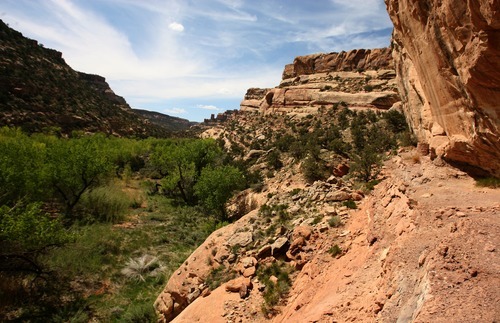This is an archived article that was published on sltrib.com in 2012, and information in the article may be outdated. It is provided only for personal research purposes and may not be reprinted.
The Senate gave preliminary approval Tuesday to a package of bills demanding that the federal government give Utah control of most public lands in the state by the end of 2014, or face a lawsuit.
"The Legislature demands that the federal government transfer the title of the public lands within the Utah borders that were agreed to in 1896 when Utah became a state," said Sen. Margaret Dayton, R-Orem, reading part of the legislation to the Senate.
Supporters say the federal government promised to give Utah those lands in the law that made it a state, but reneged.
Opponents counter that such an interpretation is a misreading of the statehood-era promises by Utah to forever relinquish claims to federal lands.
The Senate voted 19-7 to send HJR3 to a final vote — which demands the lands. It also voted 22-7 to have a final vote on HB148, which sets up mechanisms to sue if the demands are not met. The seven Democrats in the Senate were the only members to oppose the bills.
The Senate amended HB148 to remove national parks and monuments in the state from the lands that it is demanding. Sen. Wayne Niederhauser, R-Sandy, said the legislation now seeks only lands controlled by the U.S. Bureau of Land Management and the U.S. Forest service that are not formal wilderness, parks or monuments.
Sen. John Valentine, R-Orem, an attorney, said he believes this approach is the first scheme for obtaining the federal lands that he believes has a real chance of success. "I think it has sound constitutional principles behind it," he said.
However, Senate Minority Leader Ross Romero, D-Salt Lake City, noted that the Legislature's own attorneys put a "constitutional note" on the bills saying they are likely unconstitutional and "that it will engage us in a legal battle with the federal government, and ultimately we are likely to lose in that endeavor."
Romero said pursuing a lawsuit that is likely simply to waste time, effort and taxpayer money "is not the best policy."



